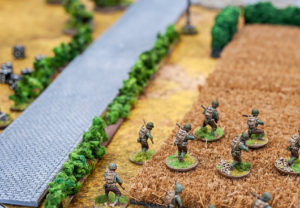(U.S. Air Force photo by Staff Sgt. Stephenie Wade)
Forget the CIA’s “enhanced interrogation.” A good military interrogator can use several methods to convince others to quit lying without crossing ethical lines. Here are some strategies service members, veterans and civilians alike can use to prod the truth out of someone, sans torture.
The Scharff Technique
German military interrogator Hanns Scharff developed this technique while questioning American fighter pilots during World War II. His methods were so effective that he became known as the “Master Interrogator” of Nazi Germany. After the war, Scharff switched his allegiance to the United States, which adopted his signature technique into the U.S. military.
Instead of asking your quarry direct questions, tell them their story in your own words. As you describe the incident in question, the individual will believe you already know the facts. They will speak up to correct mistakes and add new details. A 2014 study of the Scharff Technique found that people underestimate how much information they are giving away. Not only will you get a lot of information, but your target won’t even realize what they’ve done.
Reverse Storytelling
It’s harder to remember the details of a complex lie than it is to tell the truth. Reverse storytelling capitalizes on this fact by asking the questioned individual to go over their story in backwards chronological order.
For someone who has nothing to hide, the exercise will be easy and smooth. Studies find that people add twice as many details when reciting the truth backward, and they are more likely to speak in complete sentences as they elaborate on their story. For someone who has been lying, however, relaying the same facts in reverse order is a significant challenge. A liar will simplify their story to its bare bones using flawed speech. They won’t offer any new elaborations or details like a truth-teller would, and they might even mix up or contradict key facts on accident.
Play the Good Cop
One of the reasons “enhanced interrogation” doesn’t always work is because threats, violence and cold behavior causes the target to shut down. When you come at someone aggressively, they don’t want to cooperate. It’s human nature.
It’s also human nature to open up to someone who tries to empathize with you. Use that impulse to your advantage to convince them to confide in you. Before diving into an interrogation, build a rapport with your target. You don’t need to secure their unyielding trust or devotion here. Just their cooperation.
Withhold Evidence, Supply Surprises
A liar is going to walk into an interrogation with a rehearsed story. A military interrogator knows this. To get to the truth, they have to disrupt that narrative and force the target off script.
One way to do this is to ask them something unexpected. Your target wants to keep their facts straight and act like they have nothing to hide, but an unexpected question will send them stumbling.
This works well in tandem with withholding evidence. Waving an incriminating email in front of your target will cause them to raise their defenses. Simply alluding to evidence without elaborating will make your target nervous. They’ll know their prepared narrative won’t hold up and be forced to make changes, leaving themselves at risk of discovery.




































